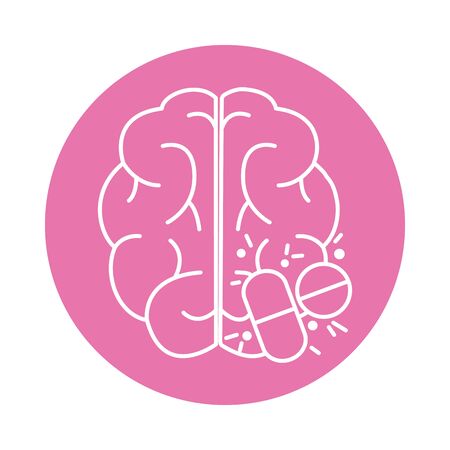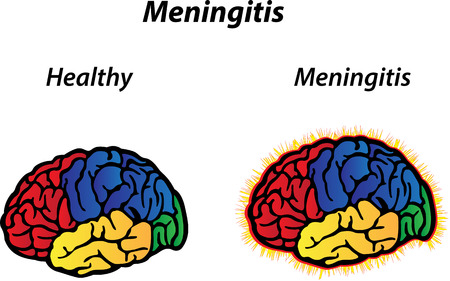Introduction to Cognitive Rehabilitation in Stroke Survivors
Cognitive rehabilitation is a vital aspect of the recovery journey for stroke survivors across the UK. After a stroke, many individuals experience changes in memory, attention, problem-solving abilities, and other cognitive skills that are essential for daily living. For those navigating this new reality, cognitive rehabilitation offers structured support aimed at helping them regain independence and improve their quality of life. In the UK context, this approach is woven into both NHS and community-based services, reflecting an understanding that recovery extends beyond physical health to include mental and emotional wellbeing. By focusing on tailored interventions and gentle encouragement, cognitive rehabilitation empowers stroke survivors to rebuild their confidence, reconnect with loved ones, and find renewed purpose in everyday activities. The importance of this support cannot be overstated; it not only enhances long-term wellbeing but also fosters hope, dignity, and resilience as individuals adapt to life after stroke.
2. Current Landscape of Stroke Care in the UK
In the United Kingdom, stroke care is primarily coordinated through the National Health Service (NHS), which offers a structured pathway for survivors from acute hospital treatment to rehabilitation and community support. Cognitive rehabilitation is increasingly recognised as an essential aspect of recovery, given that many stroke survivors experience difficulties with memory, attention, problem-solving, and communication. The NHS works collaboratively with local authorities, charities, and community groups to provide a holistic approach, ensuring that individuals receive tailored support throughout their journey.
NHS Services for Cognitive Rehabilitation
The NHS provides access to specialist multidisciplinary teams including occupational therapists, speech and language therapists, psychologists, and physiotherapists. Cognitive assessments are routinely carried out after a stroke to identify specific needs. Based on these assessments, individualised rehabilitation plans are created. These may include both inpatient and outpatient therapy sessions, depending on the survivor’s progress and circumstances. In some regions, dedicated stroke units offer early supported discharge (ESD) services, allowing patients to continue their cognitive rehabilitation at home while still under professional guidance.
Community Resources and Charitable Support
Beyond the NHS, a network of community-based resources plays a vital role in supporting cognitive recovery. Charities such as the Stroke Association and Headway provide information, peer support groups, online resources, and advocacy services. Local councils may also fund day centres or outreach programmes where survivors can participate in social activities designed to stimulate cognitive function. Volunteer-led befriending schemes help combat isolation and promote engagement with daily life.
Overview of Key Support Options
| Support Provider | Main Services Offered |
|---|---|
| NHS Stroke Teams | Cognitive assessment, therapy plans, clinical monitoring |
| Stroke Association | Peer groups, information helplines, family/carer support |
| Local Councils | Day centres, community activities, home adaptations |
| Headway UK | Brain injury support, education resources |
A Culturally Sensitive Approach to Care
The UK’s approach emphasises personalised care that respects cultural differences across its diverse population. Efforts are made to provide accessible materials in multiple languages and ensure services are inclusive for all communities. There is also a growing recognition of the importance of involving families in the rehabilitation process and supporting carers’ wellbeing alongside that of stroke survivors.

3. Key Challenges Faced in Cognitive Rehabilitation
Cognitive rehabilitation for stroke survivors in the UK is a journey marked by both hope and hardship. Despite the dedication of professionals and carers, there are several practical, emotional, and logistical barriers that must be thoughtfully navigated to support meaningful recovery.
Practical Barriers
One of the foremost challenges lies in accessing specialised cognitive rehabilitation services. The availability of tailored programmes often varies significantly across different regions in the UK, creating a postcode lottery for survivors seeking support. Lengthy NHS waiting times and limited resources can leave individuals and their families feeling isolated during critical stages of recovery. Furthermore, transportation difficulties and mobility limitations may hinder regular attendance at therapy sessions, especially for those living in rural or underserved areas.
Emotional Hurdles
The emotional impact of stroke cannot be understated. Survivors frequently experience frustration, anxiety, or depression due to changes in memory, attention, and problem-solving abilities. These emotional responses can affect motivation to engage in rehabilitation activities. Carers too may feel overwhelmed by the responsibility of supporting loved ones while managing their own wellbeing—a situation sometimes described as the ‘hidden patient’ phenomenon within UK care communities.
Logistical Issues and Systemic Gaps
Coordination between health and social care services remains an ongoing challenge. Fragmented communication among multidisciplinary teams can lead to inconsistent approaches to rehabilitation, with some survivors falling through the cracks when transitioning from hospital to community-based care. Limited awareness among both professionals and the general public about cognitive rehabilitation options further exacerbates these gaps, making it harder for individuals to advocate for their needs or access timely interventions.
Meeting Individual Needs
No two stroke survivors are alike; their journeys towards recovery are deeply personal. Rehabilitation must be flexible enough to accommodate varying degrees of cognitive impairment as well as cultural backgrounds and language preferences unique to communities across England, Scotland, Wales, and Northern Ireland. Personalised approaches—rooted in empathy and respect—are essential for fostering engagement and promoting long-term progress.
The Role of Support Networks
Peer support groups, charities such as the Stroke Association, and local community resources play a vital role in bridging gaps where formal services may fall short. However, not all survivors are aware of or able to access these networks, highlighting the need for improved signposting and inclusive outreach efforts throughout the UK.
4. Progress and Innovations in Rehabilitation
In recent years, the landscape of cognitive rehabilitation for stroke survivors in the UK has seen a heartening evolution, with dedicated efforts to bridge gaps between traditional therapies and innovative approaches. Collaborative research initiatives, NHS-backed programmes, and partnerships between universities and local health trusts are bringing new hope for cognitive recovery after stroke.
Promising Programmes and Therapies
Across the UK, several groundbreaking projects have emerged to support stroke survivors. For instance, the use of digital platforms—such as computer-based cognitive training—has become increasingly accessible through NHS services. These tools are tailored to stimulate memory, attention, and problem-solving skills in a user-friendly manner. In addition, community-based rehabilitation teams now often include occupational therapists, speech and language therapists, and neuropsychologists who work together to create holistic care plans personalised for each individual’s needs.
Innovative Research and Trials
UK researchers continue to lead clinical trials focusing on both pharmacological and non-pharmacological interventions. The Cognitive Rehabilitation for Attention and Memory in Stroke (CRAMS) study is one example where structured cognitive exercises are being evaluated for their real-world effectiveness. Moreover, virtual reality therapy is being piloted in select NHS trusts to offer immersive environments that safely challenge cognitive functions while providing engaging experiences for patients.
Summary of Recent Innovations
| Innovation | Description | Where Implemented |
|---|---|---|
| Digital Cognitive Training Tools | Online platforms for memory and attention practice | NHS clinics, Home use |
| Virtual Reality Therapy | Immersive simulations for real-life scenarios | Pilot NHS trusts across England & Scotland |
| Integrated Multidisciplinary Teams | Collaborative approach with therapists & psychologists | Community rehabilitation centres UK-wide |
This commitment to innovation ensures that survivors are not only supported by evidence-based therapies but also offered new avenues to reclaim their independence. As these initiatives expand, ongoing evaluation and feedback from both patients and carers remain at the heart of shaping future services within the UK context.
5. Role of Family, Carers, and the Wider Community
Cognitive rehabilitation after a stroke is rarely a journey taken alone. In the UK, families, carers, and local communities play a gentle yet essential role in supporting stroke survivors as they navigate the challenges of cognitive recovery. Their encouragement often forms the foundation on which formal therapies can build, making every small step forward possible and meaningful.
The Everyday Impact of Loved Ones
Family members and close friends are often the first to notice subtle changes in thinking or memory following a stroke. Their patience and understanding can make daily routines less overwhelming for survivors, from helping with reminders to gently encouraging participation in conversation and activities. Many British families find that integrating familiar routines—like sharing a cup of tea or enjoying a favourite TV programme—can provide comfort, foster connection, and gently stimulate cognitive abilities.
The Vital Role of Carers
Carers, whether relatives or trained professionals, offer practical support tailored to each survivor’s needs. In the UK, carers often work closely with NHS therapists to reinforce strategies learned during rehabilitation sessions. This collaboration might involve supporting someone through brain games prescribed by an occupational therapist, or helping structure the day to include periods of rest and mental exercise. The calm reassurance provided by carers helps reduce anxiety and instils hope during moments of frustration.
Community Networks: A Broader Embrace
The wider community—from stroke clubs and volunteer-led groups to local libraries hosting memory cafés—plays a quietly powerful role in holistic recovery. These networks not only offer opportunities for social interaction but also reduce feelings of isolation that can accompany cognitive difficulties. Across the UK, initiatives such as befriending schemes or peer support groups have become lifelines for many stroke survivors, offering shared understanding and encouragement at every stage of recovery.
In essence, cognitive rehabilitation flourishes when surrounded by kindness and collaboration. The gentle presence of loved ones, the steadfast commitment of carers, and the inclusive spirit of British communities collectively nurture both cognitive healing and emotional wellbeing for stroke survivors across the country.
6. Looking Ahead: Future Directions and Needs
As we look towards the future of cognitive rehabilitation for stroke survivors in the UK, there is much to be hopeful about—yet it is clear that significant gaps remain. Reflecting on current challenges, it becomes evident that improvements in access, funding, and awareness are crucial if we are to ensure all survivors have the opportunity to rebuild their lives with dignity and confidence.
Improved Access to Services
One of the most pressing needs is the expansion of accessible rehabilitation services throughout the country. Many stroke survivors, particularly those in rural or underserved communities, face barriers in reaching specialist support. Expanding local services, increasing tele-rehabilitation options, and ensuring seamless transitions from hospital to community care are essential steps in making rehabilitation more equitable.
Sustainable Funding
Consistent and robust funding remains a cornerstone for high-quality cognitive rehabilitation. While there have been positive strides in recent years, many services still operate under tight budgets, limiting their reach and innovation. Ongoing investment from both public and charitable sectors will help ensure that rehabilitation programmes can adapt, grow, and respond to the evolving needs of survivors across England, Scotland, Wales, and Northern Ireland.
Raising Awareness and Reducing Stigma
A greater public understanding of cognitive impairment after stroke can transform outcomes for survivors. Campaigns led by organisations such as the Stroke Association have begun to shift perceptions, but more work is needed within workplaces, schools, and communities to reduce stigma. Educating families and carers is also vital, as compassionate support at home can make a world of difference during recovery.
The Role of Ongoing Support
Cognitive rehabilitation is not a one-off event but an ongoing journey. Long-term follow-up and tailored support empower survivors to continue making progress well beyond initial therapy sessions. Peer groups, digital resources, and regular check-ins with healthcare professionals can foster resilience and hope throughout this process.
Building a Hopeful Future
Ultimately, shaping a brighter future for stroke survivors in the UK hinges on our collective commitment—to champion inclusive policies, invest in innovative research, and nurture compassionate communities. By addressing these key needs together, we can help every survivor rediscover their strengths and live life as fully as possible.


